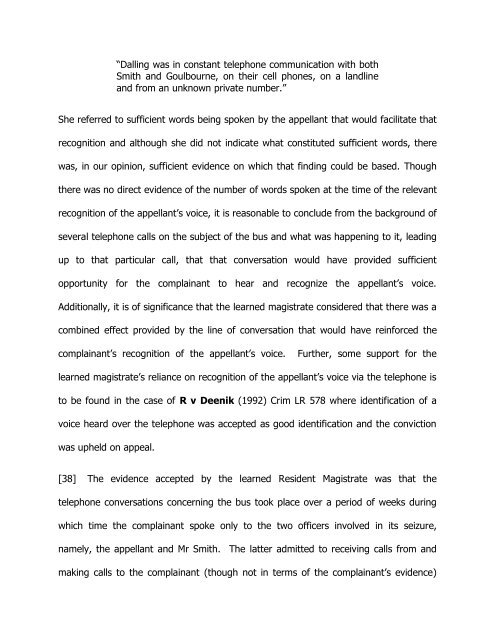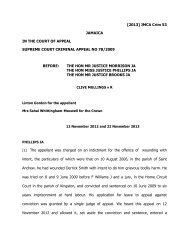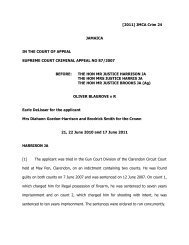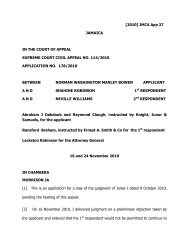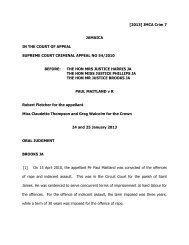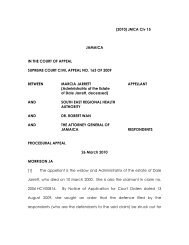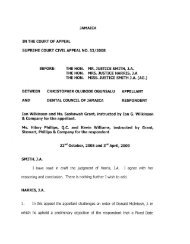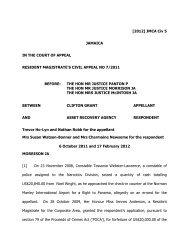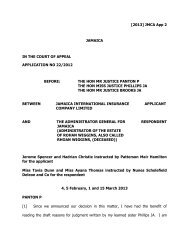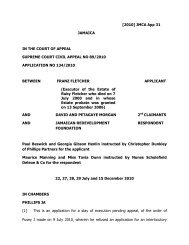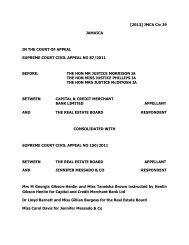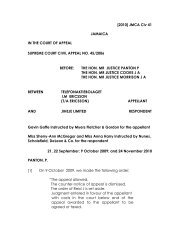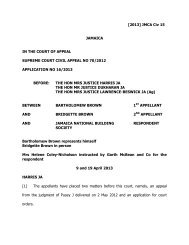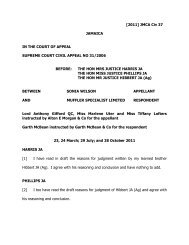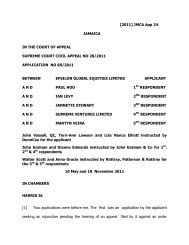Smith (Elorda) & Goulbourne (Everton) v R.pdf - The Court of Appeal
Smith (Elorda) & Goulbourne (Everton) v R.pdf - The Court of Appeal
Smith (Elorda) & Goulbourne (Everton) v R.pdf - The Court of Appeal
Create successful ePaper yourself
Turn your PDF publications into a flip-book with our unique Google optimized e-Paper software.
“Dalling was in constant telephone communication with both<strong>Smith</strong> and <strong>Goulbourne</strong>, on their cell phones, on a landlineand from an unknown private number.”She referred to sufficient words being spoken by the appellant that would facilitate thatrecognition and although she did not indicate what constituted sufficient words, therewas, in our opinion, sufficient evidence on which that finding could be based. Thoughthere was no direct evidence <strong>of</strong> the number <strong>of</strong> words spoken at the time <strong>of</strong> the relevantrecognition <strong>of</strong> the appellant’s voice, it is reasonable to conclude from the background <strong>of</strong>several telephone calls on the subject <strong>of</strong> the bus and what was happening to it, leadingup to that particular call, that that conversation would have provided sufficientopportunity for the complainant to hear and recognize the appellant’s voice.Additionally, it is <strong>of</strong> significance that the learned magistrate considered that there was acombined effect provided by the line <strong>of</strong> conversation that would have reinforced thecomplainant’s recognition <strong>of</strong> the appellant’s voice.Further, some support for thelearned magistrate’s reliance on recognition <strong>of</strong> the appellant’s voice via the telephone isto be found in the case <strong>of</strong> R v Deenik (1992) Crim LR 578 where identification <strong>of</strong> avoice heard over the telephone was accepted as good identification and the convictionwas upheld on appeal.[38] <strong>The</strong> evidence accepted by the learned Resident Magistrate was that thetelephone conversations concerning the bus took place over a period <strong>of</strong> weeks duringwhich time the complainant spoke only to the two <strong>of</strong>ficers involved in its seizure,namely, the appellant and Mr <strong>Smith</strong>. <strong>The</strong> latter admitted to receiving calls from andmaking calls to the complainant (though not in terms <strong>of</strong> the complainant’s evidence)


